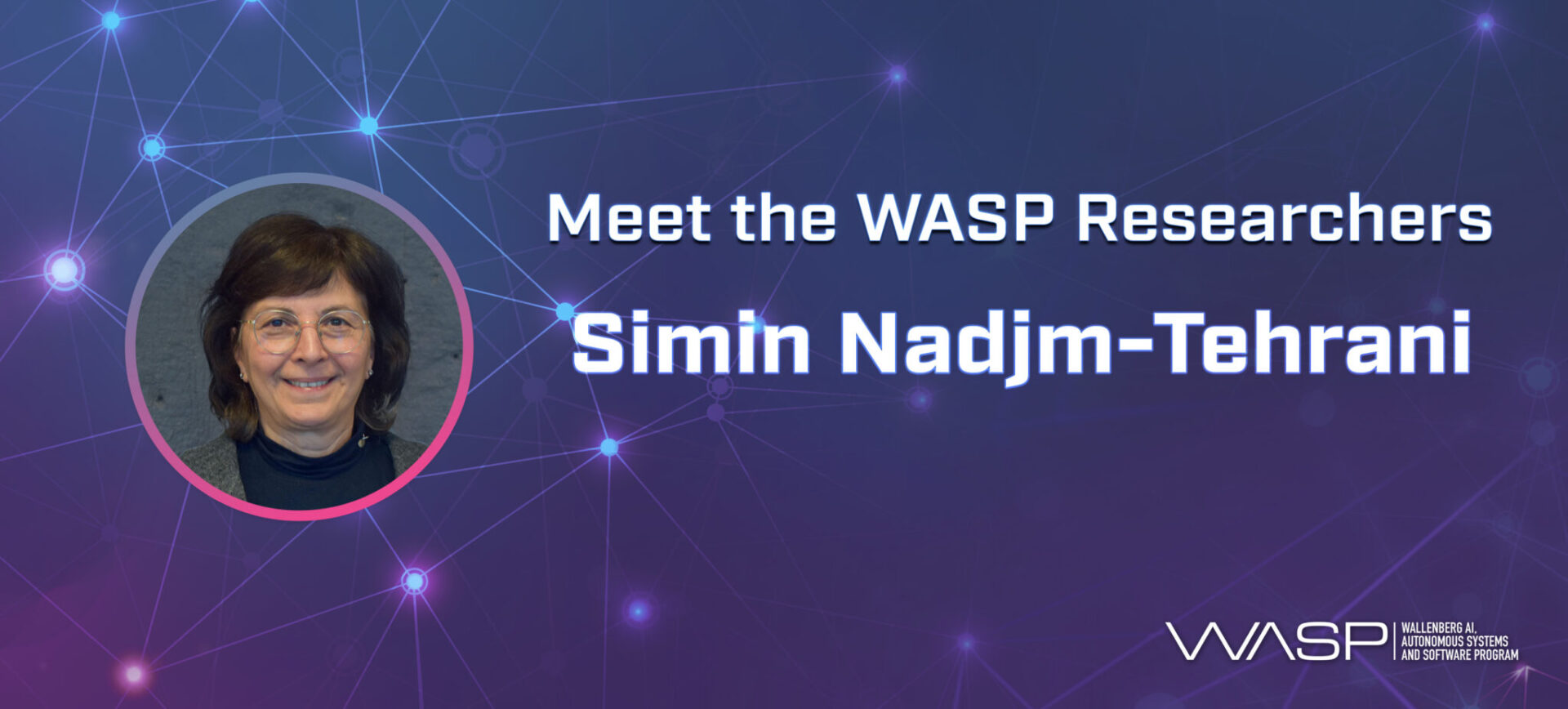WASP is very proud to have so many excellent researchers involved in the program. More than 450 researchers, reaching from assistant to senior professors, are affiliated with WASP. Some are international recruitments who have come to Sweden to join the WASP community, others are already well established in the Swedish academic system.
Through a series of portraits, you get the opportunity to get to know them a little bit better.
Meet Simin Nadjm-Tehrani
Simin Nadjm-Tehrani is a Professor at the Division of Software and Systems, Department of Computer and Information Science at Linköping University. Professor Nadjm-Tehrani joined WASP in 2017.
What is your position/role in WASP?
I am the supervisor for one academic PhD student and one industrial PhD student. I also serve on the Research Management Group for Software in WASP.
Why did you choose to join WASP?
I was approached with a challenging question from industrial colleagues in the safety-critical sector: how to make systems with AI components trustworthy? It was a too exciting question to be left unanswered. As time passed, the further dimension of cybersecurity and AI also became a field to be part of and define.
What are the benefits you see in WASP?
I find that WASP brings the depth and breadth in knowledge required for the future society under the same umbrella.
Briefly describe your research topic.
I have worked with AI methods for enhancing cybersecurity, e.g., anomaly detection in critical infrastructure for over a decade before WASP. Now we see AI being used for new/better functions. This will require explainable solutions, when applied to safety-critical systems. Also, the AI systems need to be protected from malicious attacks and misuse.
My work with the industrial PhD student, John Törnblom, is at the forefront for fast and scalable formal analysis of machine learning components that use tree ensembles. This means both showing their reliability, the explainability of their predictions, and their potential exposure to malicious use.
In what way can your research be of importance to our society in the future?
The application areas are endless, but transportation is what one sees mentioned most often.
For more informationabout Professor Nadjm-Tehrani, see https://liu.se/en/employee/simna73
Published: September 4th, 2023
[addtoany]


